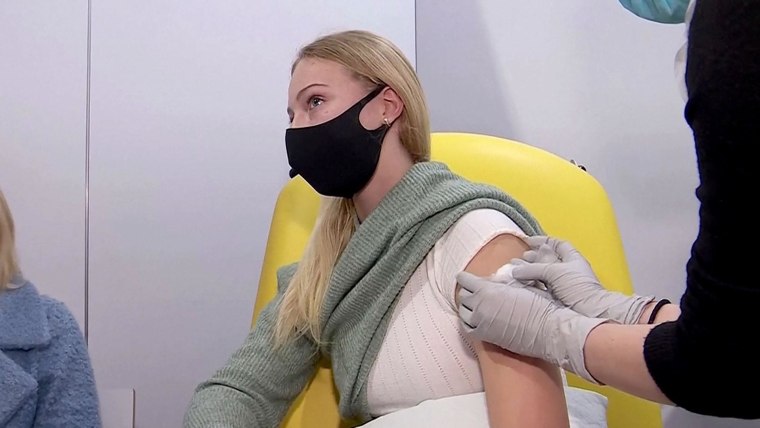Fight against Covid-19 variants in South Africa is lesson for world
When the first shipment of AstraZeneca’s Covid-19 vaccine arrived in South Africa this month, President Cyril Ramaphosa hailed the consignment as a means to “turn the tide” against the virus.
But the growth of a dangerous variant of the coronavirus has thrown the country’s response to the pandemic into disarray, and raised fears around the world that mutant strains will potentially render the current generation of vaccines ineffective.
“What we are going to see is a cat-and-mouse game between virus changing and then vaccine manufacturers having to quickly change their vaccines,” said Devi Sridhar, professor of global public health at the University of Edinburgh.
“So the lesson is we need to keep the numbers low so we don’t see more and more variants emerging, which make it harder to vaccinate against.”
Read more on this story at NBCNews.com and watch On Assignment with Richard Engel, “Covid Mutants,” airing Sunday, Feb. 21, at 10 p.m. ET on MSNBC.
The first signs of trouble came in October, when doctors noticed a worrying rise in the number of cases, specifically around Nelson Mandela Bay, the eastern end of the picturesque stretch of South Africa’s coastline known as “the garden route.
”Within five weeks, scientists had identified a variant with troubling mutations to its spike protein, the part of the virus that enables it to enter human cells. Current Covid-19 vaccines target the spike protein, but the mutations may make antibodies produced by the vaccines less effective. The mutations may also make people who previously had coronavirus more susceptible to reinfection.
“People who were infected previously with SARS-CoV-2 and who’ve generated antibodies to that virus, those antibodies may no longer recognize this new variant of the virus because of the changes in the spike protein,” said Richard Lessells, a lead researcher at the genetic sequencing lab, KwaZulu-Natal Research Innovation and Sequencing Platform, that identified the variant.
“What that means is it’s possible that this variant is able to reinfect people, and that may be contributing to how it’s spreading more efficiently through the population again.”
South Africa has been the hardest-hit country on the continent, suffering through a first wave of coronavirus that peaked in July, midwinter in the Southern Hemisphere. The government put in place strict lockdown measures, closing borders, enforcing curfews and even banning alcohol sales to prevent “reckless behavior” caused by drinking.
By the end of September, cases were down and the government announced the easing of lockdown restrictions, reopening the country to tourists and business travelers. This freedom gave the new variant of the virus the space it needed to spread, however, accelerating a second wave that has hit harder and faster than the first.
More than 48,000 South Africans have died from coronavirus, and the South African variant has been detected in more than 40 countries, including the United States.
Read More: Fight against Covid-19 variants in South Africa is lesson for world

